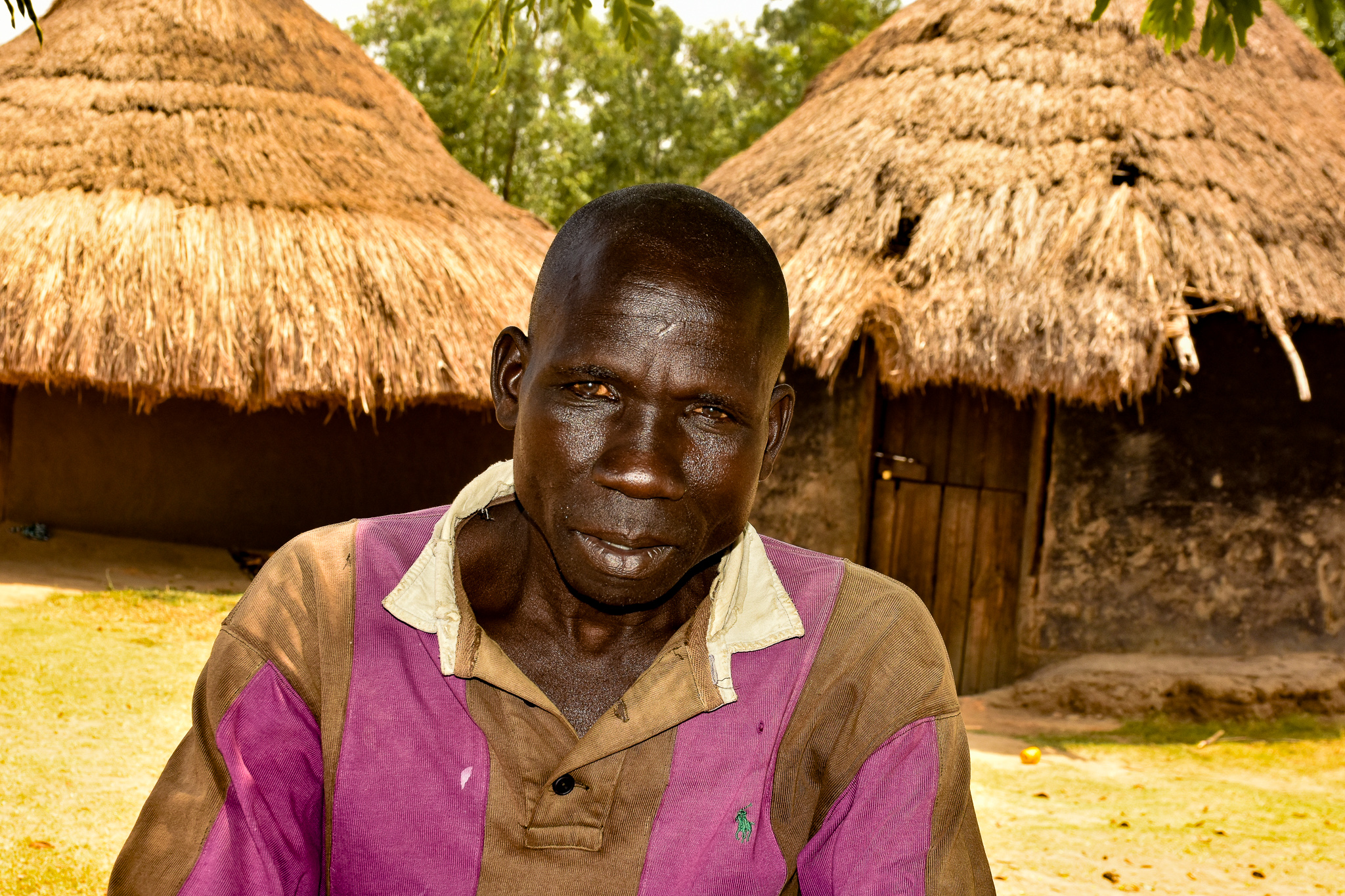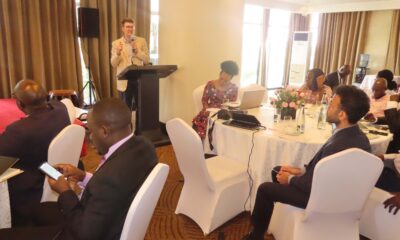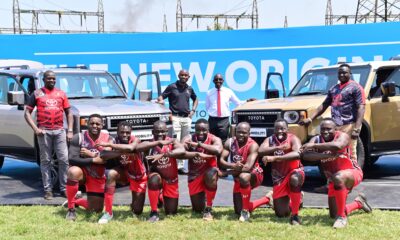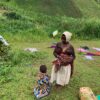Feature
How involvement of men in Family Planning could harness Uganda’s Demographic Dividend
An average of three to five men receives vasectomies at Reproductive Health Uganda clinic in Arua City every month. The numbers are still low as compared to the population in the area which is estimated at 751,000 by January 2021 according to the Uganda Bureau of Statistics. Arua City alone is estimated to have a population of 150,000 residents. But why is it important for men to get involved in issues of family planning, that have for many years been known as a woman’s responsibility?
For Uganda to achieve objective three of the National Development Plan (NDP) III, one of the key human capital interventions is to increase access to family planning services, which is one of the drivers for harnessing the demographic dividend (DD).
Demographic dividend is the economic growth potential that can result from shifts in a population’s age structure, mainly when the share of the working-age population is larger than the non-working-age share of the population.
Uganda’s Demographic Dividend compliance for the Financial Year 2019/20 conducted in 43 districts, (including Arua) showed that the overall DD alignment for the district health departments is still low at 38.4% (which is weak).
Currently, 48% of Uganda’s population is under the age of 15, which translates to a high child dependency burden. According to Dr. John B. Ssekamatte–Ssebuliba (Ph. D) a Population and Development Consultant says that in Uganda, a high underage population translates to a “Poverty Trap”.
“The country spends too much on child-related services like Health – MCH, immunization, curative, (incl. specialized), education – nursery, primary, and secondary, housing and related services. This takes away money meant for on investment projects like infrastructure, enhancement of projects for agriculture, industry, etc,” says Dr. Ssekamatte.
According to the current DD, if Uganda makes substantial investments in reproductive health and family planning, then fertility levels may begin to decline more significantly, and children will be more likely to achieve better basic levels of health.
Dr. Phillip Atidra the in charge of Reproductive Health Uganda (RHU) Arua City branch says West Nile Region is still lagging behind. He is however quick to add that efforts by Government and different stakeholders are gaining momentum and more people, especially in urban centres are now seeking help because they are unable to feed many children.
“Compared to the national statistics from other regions, uptake of family planning in West Nile is still low. However, a number of interventions have been put in place by the Ministry of Health and partners like RHU to try and increase the uptake of family planning by the community,” Dr. Atidra says.
He also blames the COVID-19 pandemic that caused a shift in resources from other important issues like family planning and lockdowns that could not allow for outreaches. He also blames cultural and religious beliefs as some of the reasons why most people do not seek family planning services.
Despite these hurdles, there has been an increase in the number of men seeking family planning services in Arua, Dr. Atidra says. They use condoms, while others are getting permanent services like vasectomies.
A 2020 report by UNFPA indicates that the use of condoms in the West Nile region had increased. “West Nile Region ranked highest in the distribution of the male condoms, with 5.1 million pieces in 2019, this is a 52% increase from 2018. In the West Nile region, Arua district alone distributed 4.2 million pieces,” part of the report reads.
Dr. Atidra explains that before the pandemic, he used to perform three to five vasectomies per month. In 2019 alone, Dr. Atidra performed 56 vasectomies in a space of 6 months.
One of the men that have benefitted from getting a vasectomy is Anguyo Moses a 44-year-old resident of Ekarakafe cell, Ayivuni Division in Arua City. His plan was to have three children. However, he now has five.
“My family was growing bigger and I had financial challenges. I was also growing older, yet with younger children. I realized I could not manage to take care of many children, especially at my age. I knew that if I had more children, there were going to be problems, especially in the future. My eldest child is 15 years old while the youngest is 6 years old,” Anguyo says.
Anguyo also says the mother of his children had suffered severe side effects while using some family planning methods like over bleeding and he wanted to relieve her of the burden permanently.
“She used some injectable and implants but I had started to see some effects. Sometimes she became very thin, sometimes there was continuous bleeding,” he recalls.
By the time they got married, his wife had at least three children from her previous marriage. Despite the couple now having this many children, she was not so welcoming of the idea for her husband to get a vasectomy, but Anguyo explained to her why this was needed. In 2019 When she was on board, he then proceeded to go for counseling at RHU Arua and then made an appointment.
According to Anguyo, the procedure was free of charge and he only got mild pain. He has since become a champion for family planning and when he is not working as a builder (his day to day job), he is moving around convincing other men and women with big families to also follow in his footsteps. He has so far convinced more than 30 men and 10 women to go for permanent family planning methods. Anguyo is also the area LC1 chairman for Ekarakafe cell and this gives him knowledge of his people who are struggling.
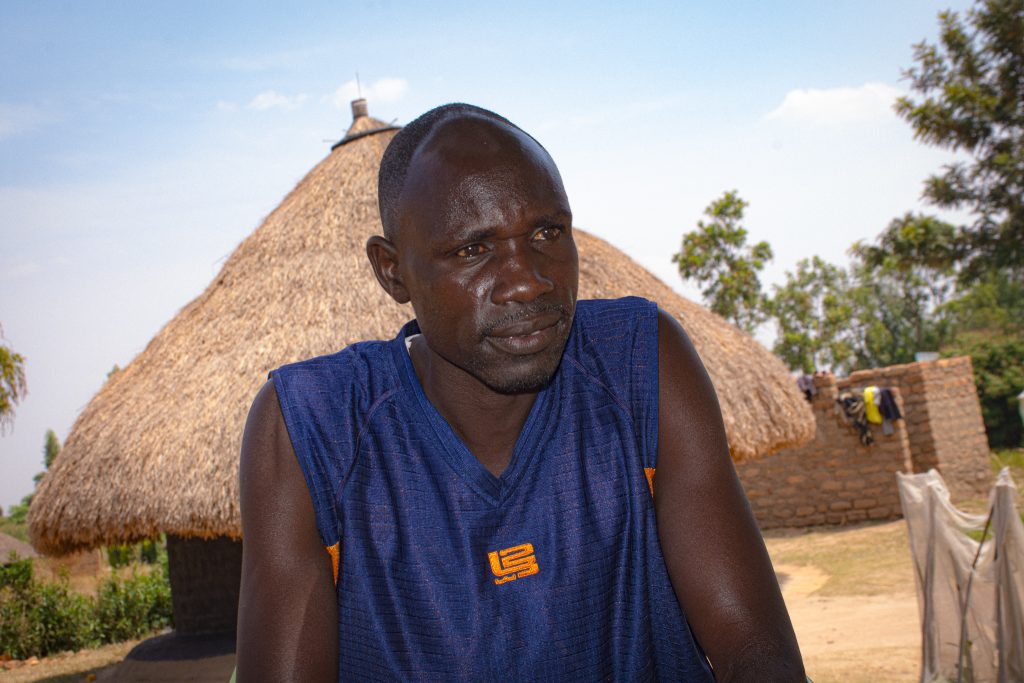
Stoma George 54 years, a resident of Ajiriva village, Pajulu sub-county in Arua district is another male champion of vasectomy. He made a decision to go for the procedure in 2018 after having the 14th child. His three wives, one deceased have given him 14 children, though three of them are also deceased. He now has 11 living children and two wives to take care of them.
In 2018, Etoma got a reality check when he realized the number of children had grown bigger, yet his resources were not enough to carry the burden.
“I knew if I continued producing, I was not going to manage the family. I do not have money and land. I knew education would be a challenge, so I decided to stop,” says Etoma.
After making a decision to stop having children, Etoma sat down with his two wives and discussed with them and they both accepted. He had been approached by a village mate who also works with Reproductive Health Uganda, about a possibility to seek a permanent solution to his problem. He then visited the facility and was counseled.
“It took me at least a week to make the decision to go for the vasectomy. Because at the facility they presented to me, some short-term solutions too and I needed to make a decision that would benefit not just me, but my entire family. So, I chose the vasectomy,” he added.
Etoma also says he has since been advising his friends who are facing the same predicament as he did, to go for the procedure. So far, four men have accepted to receive the service and save their families.
There are so many other male champions that have benefited from receiving vasectomies, but there are many others who still equate the procedure to castration. They also believe a man is only respected if he has as many men as possible. As a result, some families have women who have carried up to 15 children alone and their husbands are still forcing them to carry more.

36-year-old Ikoru Patricia made a decision to go for Tubal ligation after having 8 children with her husband, who has other children with another woman. Tubal ligation is a surgical procedure for female sterilization in which the fallopian tubes are permanently blocked, clipped, or removed.
Ikoru left her children with her mother in Muni village, Oluko Subcounty, in Arua district, to go earn a living in Arua City where she sells second-hand clothes at the market. She had her first child at the age of 18 and her last child is now three years old.
According to Ikoru, she did not know how to space the three eldest children because she was also still young. It was after the third child that she decided to start family planning and spaced the other five children.
“On the fourth child, I realized there was too much pressure. My husband was not doing well. We had no money. So I decided to start spacing the children. He also had another woman who also has children. This was a lot for me,” she says.
However, she faced so many challenges with pills that the health worker prescribed for her. She used pills until she had produced 8 children. During a meeting for their savings group in the market, Ikoru met Anguyo Moses who intimated to her that she could find a permanent solution to her problem. He introduced her to RHU, where she received counseling and then made a decision.
She then discussed it with her estranged husband who had no objection. She then proceeded to get Tubal litigation.
“When I was getting married, I was young and had no plan. You know in our culture; we just produce just like that. Now I am seeing the challenges because the world has changed and all these children have to go to school, they need clothes. That’s why I said this is enough,” says Ikoru.
Her husband is a builder who uses his meager earnings to take care of the two families. However, Ikoru also contributes financially. Ikoru says it is difficult for most husbands to recognize that their families are growing bigger than their resources. She says her husband does not earn a lot as a builder but has over 15 children to take care of.
Ikoru says the government needs to increase male awareness on the issue of family planning because some of her friends have been barred by their husbands from ever seeking family planning services. “When I told my husband that I was going for this permanent method, he did not object because we are no longer together and he has another woman. But some of my friends have not been lucky, and they are still suffering,” she says.
However, Dr. Atidra says the use of family planning is an individual choice and one does not need permission from their partners to get it. He says that it is common courtesy for one to tell their partner out of respect, but it is not a requirement at the health center to show consent from the other party.
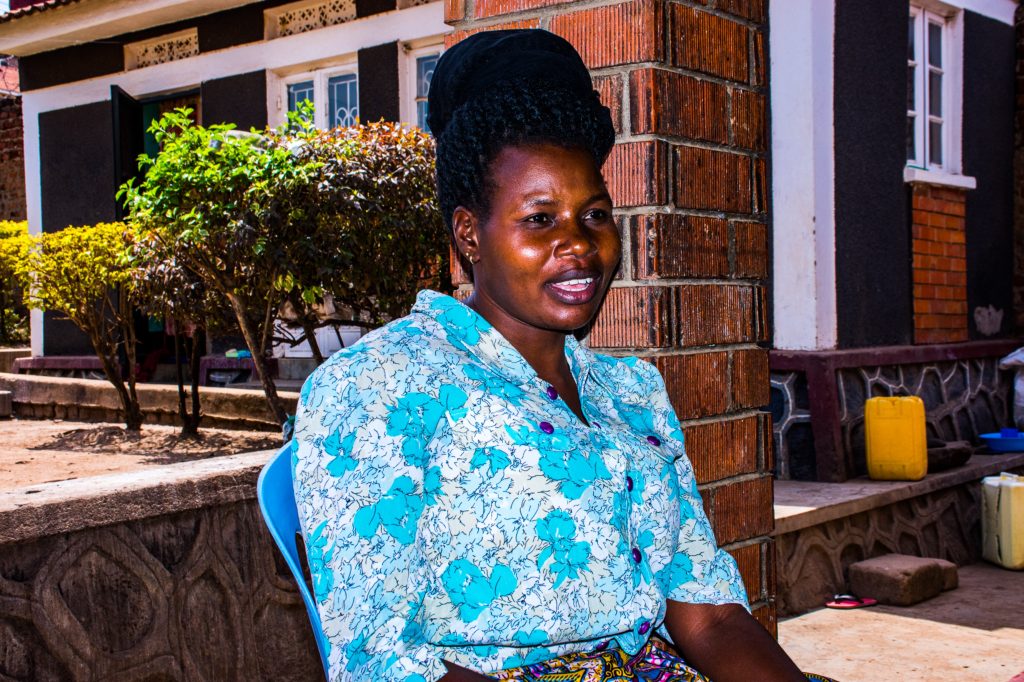
As Uganda fights to reduce the population that is rapidly growing in order to reduce pressure on the meager resources, men are expected to work with women in order to plan for their families. However, the government must work with stakeholders in order to design campaigns targeting men.
Hassan Sekajoolo the Founder MenEngage Gender Equality Network Uganda says that the packaging of family planning needs rethinking because, from research and science, FP methods were mainly gender-biased and exemplified the control of women’s bodies by men.
“So, the methods are mainly female based, that’s why men are reluctant to support or even seek them,” he says. “Men think that FP is a women’s issue as most methods are applied by women except the condom and vasectomy. We have to work on repackaging FP to be beneficial to men, we need to tell men what they need to do to share into the FP burden.”
Mr. Sekajoolo explains that some campaigns run by the government and stakeholders do not include men and that if programmers do not apply the feminist and gender transformative approach to crafting FP projects, men will always be left out.
He adds that programmers need to recognize the different layers around the uptake of FP and aim to transform not only men and women but also the structural barriers undermining access to FP.
“It is self-defeating if a project doesn’t engage men yet social structures position men to make decisions. You can’t make a decision with no information. That could explain the slow uptake of FP on the continent. We need to continue empowering women to make informed decisions about FP methods that suit their lifestyles. We need to educate men about the shared responsibility in the uptake of FP and be able to communicate the non-health benefits for men that come with uptake and advocacy for FP,” Sekajoolo says.
He adds that MenEngage works with member CSOs and is constantly integrating men into FP programming. “We have seen men appreciate immensely when we communicate non health benefits of FP.”
Sekajoolo calls for stakeholders to work with boys and young men to deconstruct the gender bias in the family planning methods as these usher in a generation that supports the use of FP.
Uganda is currently struggling with a high dependency burden and a low modern contraceptive prevalence rate 35% which translates to poor distribution of resources, unemployment, and environmental crime among others. However, involving both men and women in planning for families may in the near future help harness her demographic dividend.
This story was produced with support from National Population Council, (NPC) Uganda.


